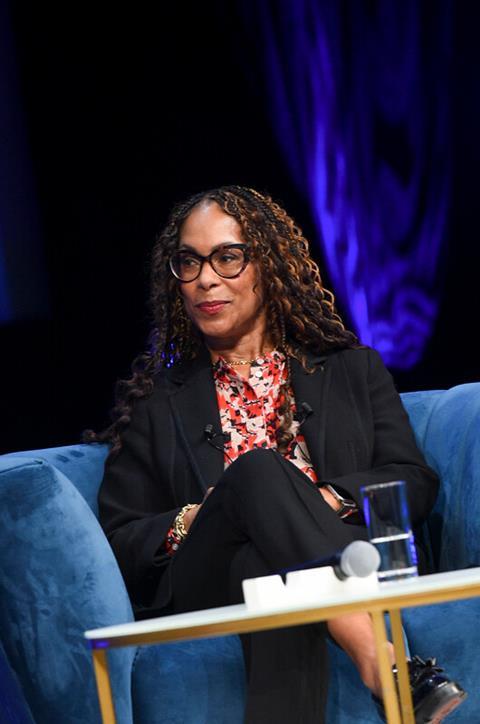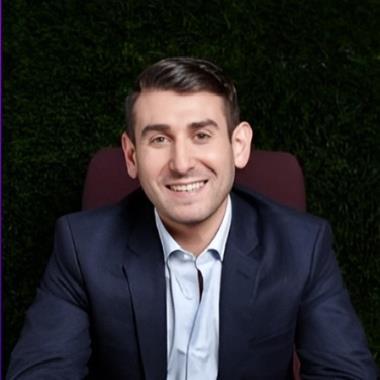Funding and consolidation dominate conversations as new models emerge in the Cannes sunshine
For all the marketing around slick new scripted series and buzzy formats at Mipcom 2024, it was a content creator-led firm that seemed to pop up most frequently in conversations on the Croisette (and the bars surrounding it).
YouTube has become a byword representing some of the forces that have pushed the global TV market into myriad spirals of doom over recent years, as younger viewers shift their attention to the Google-led streamer and social apps such as TikTok.
The long-tail effects of the US writers’ strike and the ongoing challenges faced by the global streamers – both of which are connected to the above – have also complicated matters for producers and distributors.
Yet the underlying message that came out of numerous chats with execs on all sides of the business at Mipcom 2024 was one of emerging green shoots: industry players have seen the imminent – immediate, even – threats facing those who do not adapt quickly enough to rapidly shifting viewing habits and they are now responding.
This is playing out in different ways. Creativity might lie at the heart of the industry but the currency in which we all deal is cold hard cash. And on that front, things are changing fast.
Financial times
Execs hailing from both sides of the Atlantic told Broadcast the financing of shows across all genres is shifting rapidly as budget squeezes continue on a domestic and global basis.
Soft money has never been more important, especially in scripted, but new models are emerging while a geographical shift in the balance of power also seems to be in play.
The US is no longer seen as the golden goose it once was, with scripted and unscripted execs on the production side looking forlornly at former Stateside commissioners who have little to offer them at present.

Instead, there is increasing awareness of the international market and its ability to support productions. This was neatly underlined by Warner Bros. Television Group’s chair & chief exec Channing Dungey when she told delegates there would be more “meaningful opportunities” for production firms outside the US, with coproductions more of a focus than ever before.
Unscripted producers have faced a torrid time of it in most countries over the past 12 months, but among the gathered crowds in the bars near the Mondrian hotel (The Grand for the veterans), there were those who have adapted and are succeeding.
Again, it comes down to canny use of international teams and leveraging their expertise, be it via cost-effective hub productions or embracing new technology to reduce production (and post) costs. Meeting audiences across every channel is also beginning to pay dividends.
All of this is coming too late for some and if the rumours circling the Palais this week are anything to go by, there will sadly be more production company closures coming in the not-so-distant future. The industry in so many domestic markets simply cannot support so many producers.
Indeed, consolidation talk remains a hot topic, and the chatter this week amongst in-the-know execs all pointed to an industry that will see some big deals go down in the next 18 months.
These will enable groups of all flavours to shore up their positions and navigate the ongoing shift of viewers from channel-based linear viewing to streaming, be it on-demand or more nascent industries such as FAST.
Just where the advertising and SVOD dollars will go over the next five years is still unclear, but it will be the companies that are best prepared to leverage opportunities – be it on YouTube, TikTok or Netflix – that will survive.
And while the more nascent creator-led community that is performing so well on YouTube will undoubtedly grow further, the immense skill of producers working predominantly in TV and streaming remains hugely valuable.
There is a reason why so many private equity companies are now behind major production and distribution firms – and those companies see opportunity.
Ever the voice of reason, All3Media’s chief exec Jane Turton provided perhaps the most insightful keynote this year, telling the packed Grand Auditorium that industry flux is part and parcel of the lumpy world of content production.
Turton admitted that new owner RedBird IMI had been sold on the “platform for growth” offered by the Studio Lambert, Two Brothers Pictures and Raw parent, as well as “the economics, frankly”.
And those opinions do not seem to have changed since completion of the £1.2bn acquisition earlier this year. Perhaps most noticeably, Turton also discussed the “further additions” coming down the track and pointed out that additional “scripted units” would be coming. It was a very public vote of confidence in a sector that has faced huge challenges but that is becoming to emerge from the other side.
‘Indie funding’ gains traction as cost makes producers re-evaluate
Though partnerships have taken centre stage, as streamers and US studio majors alike talked up co-productions, decisions on how producers, buyers, distributors and other financiers team up are predicated on how much of the IP ownership they each retain. One transatlantic indie told Broadcast they are trying something different.
Upcoming scripted projects are being produced and fully financed by itself, its investors, and two other equity partners. The US-focused series, which are targeting the $4-5m (£3.1m-3.8m) per hour budget bracket, are being shot on the continent to take advantage of tax credits.
However, no commissioner, pre-buyer, co-producer or distributor is involved. The indie’s creative chief said bringing the “indie film funding” model into TV allows them to “own what we make”, and the production company will be taking resulting shows out to market when completed.
“People are being much more targeted in what they acquire. As a company, we’re saying: ‘let’s go for shows in the areas we know there are gaps in the schedule. We’re investing in areas we know there’s market for’”
Tim Mutimer, Cineflix Rights
Naturally, this model is dependent on having the resource and financial backing to do so, but some other creatives mentioned to Broadcast they were also exploring equity investors to help fund projects so that IP can sit with the producers rather than the buyers.
Costs are also giving established labels pause for thought on development too. With intense competition in the scripted marketplace polarising players into either ultra-premium or low-cost drama, the head of a US producer said they were assessing their top-end heartland to target some “really mainstream drama”. The implication being they need to go where the buyers are investing.

Tim Mutimer, chief exec of Cineflix Rights, concurred: “People are being much more targeted in what they acquire. As a company, we’re saying: ‘let’s go for shows in the areas we know there are gaps in the schedule. We’re investing in areas we know there’s market for.
“You follow the market, what your clients are telling you and where the audiences are. So, in the US, Greg [Johnson, executive vice-president of Americas] is trying to get involved at an early stage on projects, we’ve got one with great IP and we’ve got the first scripts in and he’s saying what will work best for buyers.”
The buyer’s view
Some distributors raised concerns that buyers, despite being in attendance, don’t have the acquisition budgets to pick up shows on offer in the market, with meetings based on ‘registering interest’ rather than deal-making. However, this is not the case across the board.
“Our business is strong, we’re actively licensing library, first window, talking about co-productions and it’s very well-received,” Sam Harowitz, senior vice-president, content acquisitions and partnerships at AVoD streamer Tubi, told Broadcast.
“I think distributors, producers, licensors are also in a better place because folks have got more real with themselves and the market. There’s an understanding of where we are as a business and what the global marketplace can sustain – the number of series, quality, price points, genres of programming.”
For Tubi, which launched in the UK earlier this year, maintaining its offering as it builds out its international presence is the goal. “Levity” is the word Harowitz used when looking at content needs as he revealed “comedy is an emerging vertical” on the platform. But he said the UK launch had provided insights beyond simply genre needs.
“Recency matters, in addition to nostalgia,” he added. “Nostalgia is something everyone can come to a service, engage with it and feel comfortable.
“But to get folks into the service, recency matters, meaning titles which have a little more shine on them – perhaps coming off a premiere window or pay window.”

Harowitz also said though competition is still high and “SVoDs have indicated they’re clearly spending money” on acquisitions, the re-emergence of licensing in US studio majors was another positive for the industry to cling onto, despite European distributors’ concerns that it would mean more US product in the marketplace.
“Licensing is a very important part of streaming, these studios understand the value of their brand and they need third-party cash right now,” he added.
“This is all good because it helps create sustainability in our business. Walled gardens didn’t work, we saw it, and now – slowly but surely – the diversification of assets throughout the ecosystem has brought back some light and levity to our business.”
And while there is no doubt the industry could do with a good dollop of both lightness and levity following some pretty dark days over the past 18 months, the key takeaway is even greater.
There is now not only a realisation that change is here but an urgency to respond. Transition will not be straightforward and there will be further casualties but for the fleet of foot - and, frankly, the savvy - the evolving ecosystem will provide opportunities aplenty.






























No comments yet